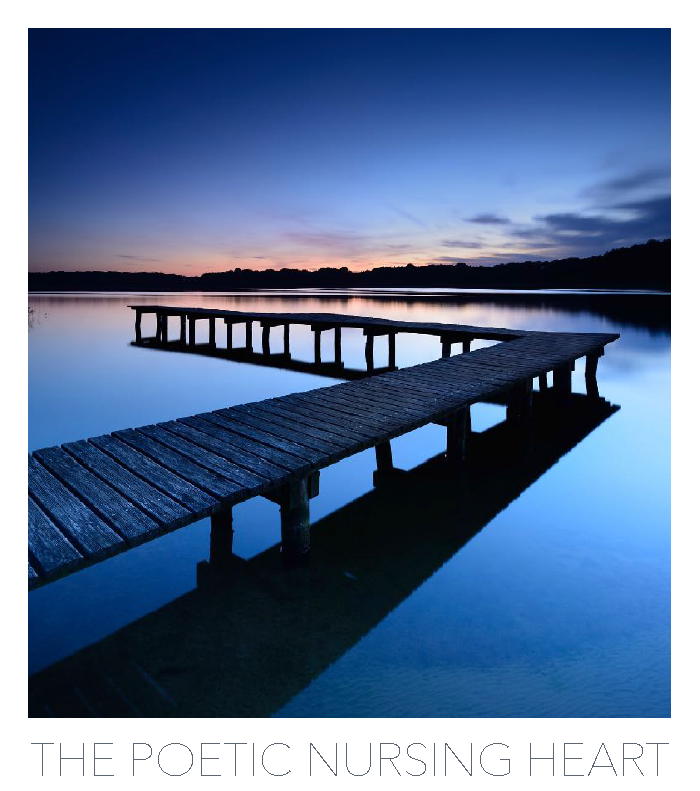by Tom Delahunt
In the quiet corridors of memory, there exists a tale of transformation—a narrative of resilience and redemption that unfolds like the pages of a long-forgotten book. It begins with a solitary figure, a young boy peering out of a classroom window, his gaze lost in the distant horizon where the sky meets the earth. His young mind, already housing the weight of unseen traumas and a sense of disconnection he couldn’t quite navigate. War poetry echoes through the room, read aloud by an educator, yet something within him stirs—an upwelling feeling that the words spoken fail to capture the essence of what he sees and feels. Unbeknownst to him, he’s already delving into the depths of philosophical theory, weaving his own interpretations of the verses with threads of movement, nature, and the poignant inevitability of death in war.
“Poetry is the spontaneous overflow of powerful feelings: it takes its origin from emotion recollected in tranquillity.” – William Wordsworth
“A poem begins as a lump in the throat, a sense of wrong, a homesickness, a lovesickness.” – Robert Frost
Fast forward thirty-two years, and that boy is no longer a mere observer of life’s unfolding tapestry. No, he’s become a master weaver himself, intertwining the strands of creativity and education into a symphony of possibility and wonder. He sits amidst a gathering of eager minds, not as an outsider looking in, but as a beacon of inspiration—a hobo poet turned educator, successful author, and playwright, his name synonymous with innovation and imagination in higher education.
“Poetry is the rhythmical creation of beauty in words.” – Edgar Allan Poe
As he stands at the precipice of yet another creative endeavour, on the cusp of birthing a new immersive world where poems and the joy of play take centre stage, he reflects on the journey that brought him here. Each twist and turn, each setback and triumph, has shaped him into the dreamer, thinker, and creative force he is today.
But amidst the accolades and achievements, he remains grounded in the knowledge that his greatest work lies not in the books he’s written or the stages he’s graced, but in the hearts and minds of those he’s touched along the way. For that boy, that solitary figure gazing out of a window, is none other than me—the hobo poet, the educator, the dreamer, on the brink of creating a new world where the tea party in his wonderful mind unfolds in all its splendour.
“Poetry is the lifeblood of rebellion, revolution, and the raising of consciousness.” – Alice Walker
As I reflect on the journey from solitude to light, from the depths of despair to the heights of creative expression, I am reminded of the power of poetry to heal, to inspire, and to transform. Lidia’s poem, “Tragedy Comes,” serves as a poignant reminder of the resilience of the human spirit amidst the ravages of war.
In the depths of despair, amidst the wreckage of war,
Beneath the white mist and layers of dust,
Beneath were the streams, puddles of blood.
The heartbroken fathers leaving homes, they must,
Their black polished shoes running in mud.
As days became weeks and months became years,
The shivering innocents wiping their tears.
The tall solemn soldiers standing straight as trees,
As their hair turning grey moved in the breeze.
As soon the cold shiver will turn into Spring,
Soon we will see what Summer will bring.
Maybe we’ll live to see golden days,
Wait till the sun’s shimmer meets your gaze.
Roses, daisies and daffodils grew,
Poppies marked places of people we knew.
Explosions of colour brightened the place,
As the beaming bright sun marked happier days.
Lidia’s words, like a beacon in the darkness, illuminate the path towards hope and healing, reminding us that even in the midst of tragedy, there is beauty to be found. As we journey through life’s trials and tribulations, may we draw strength from the power of poetry, from the timeless truths that resonate across generations, and from the knowledge that within each of us lies the spark of creativity waiting to ignite.
And so, as we bid farewell to this chapter in the saga of the hobo poet’s healing, let us carry forth the lessons learned, the stories shared, and the bonds forged in the crucible of creativity. For in the end, it is not the accolades or the applause that define a poet’s legacy, but the lives touched, the hearts uplifted, and the souls set free by the power of their words.
‘Where two fingerprints fall you see a love cast amongst the lines of life lived’
Thomas Delahunt

Figure 1 Stock images CCL
“Poetry is when an emotion has found its thought, and the thought has found words.” – Robert Frost
As we embark on the next chapter of our collective journey, may we continue to find solace and inspiration in the beauty of poetry, and may the healing power of words guide us towards a brighter, more compassionate world.
—————————————————————————————————————-
From Rosie, the Teacher:
“We are so grateful to Tom for his commitment and dedication inspire the young people in our school. Tom spent an afternoon with us. He started by reading The Wandering Lamb to our EYFS pupils. They loved butterfly spotting with Tom! Next, Tom went to the other end of the school. Our Year 6 children shared their poems with him. Tom made every child he spoke to feel heard, appreciated and valued. He praised their efforts and gave the children individual feedback, whilst making them laugh too. After that, Tom did a whole school assembly. He spoke about his book, his experiences at school and proved to the children that they can achieve anything! Finally, around 40 of our pupils chose to stay behind at the end of the school day to meet Tom and buy one of his books. We are very much looking forward to the future. Our children loved Tom’s visit and are excited for what is to come.”
From Lidia:
“Last term, a poet called Tom Delahunt came to our school to talk about his book called The Wandering Lamb. While he was in our classroom, we also shared some of the poems we had written about the conflict of war as part of our English learning. Tom was really impressed with them all, but said he particularly liked mine and thought it should be published. This made me feel very proud. I liked writing my poem because it is a creative piece of writing which is the sort of writing I enjoy.”
—————————————————————————————————————-
Working with five Kent schools as a poet in residence, I’ve embarked on a journey around poetry and neurodiverse allyship. It’s a legacy associated with my book “The Wandering Lamb,” but more so, it’s an attempt to ensure other lambs like me are welcomed to a learning culture they can navigate.
A Tale Alive Within…………
In the tapestry of life, there are threads that weave through the fabric of our existence, shaping who we are and where we roam. For me, one such thread is “The Wandering Lamb,” a story that has become more than just words on a page—it has become a part of who I am, a tale alive within me, forever shaping my journey.
As I reflect on the path that led me here, I am reminded of the solitude of my youth, the young boy peering out of a classroom window, yearning for something more, something beyond the confines of walls and words. It was in those moments of quiet contemplation that the wandering began—a journey of exploration and discovery, guided by the whispers of poetry and the echoes of dreams.
“Not all who wander are lost.” – J.R.R. Tolkien
With each step along the winding road, I found solace in the company of poets and philosophers, kindred spirits who spoke to the depths of my soul and ignited the fire of creativity within me. From the rugged hills of Robert Frost to the ethereal realms of Edgar Allan Poe, their words became my compass, guiding me through the labyrinth of life with grace and purpose.
“Poetry is the language in which man explores his own amazement.” – Christopher Fry
And so, armed with nothing but a pen and parchment, I set out into the world, a wandering lamb in search of truth and beauty, wisdom and wonder. Along the way, I encountered teachers like Rosie, who saw the spark of potential within me and nurtured it with kindness and encouragement. Their belief in me became the wind beneath my wings, propelling me ever forward on my quest for knowledge and understanding.
“Teachers can change lives with just the right mix of chalk and challenges.” – Joyce Meyer
But it was not until I met Lidia, a young poet with a soul as old as time, that I truly understood the power of storytelling to heal and transform. Her words, a haunting melody of hope amidst the chaos of war, spoke to the depths of my being and ignited a passion within me to share her voice with the world.
“Poetry is the revelation of a feeling that the poet believes to be interior and personal which the reader recognizes as his own.” – Salvatore Quasimodo
As I stand on the threshold of a new chapter in my journey, I carry with me the lessons learned and the stories shared along the way. “The Wandering Lamb” is no longer just a book—it is a testament to the resilience of the human spirit, a beacon of hope for all who dare to dream and wander in search of truth and beauty.
“In the end, we’ll all become stories.” – Margaret Atwood
And so, as the wandering lamb, I embrace the uncertainty of the road ahead, knowing that with each step, I am writing a new chapter in the tale alive within me. For in the end, it is not the destination that matters, but the journey itself—the winding road that leads us ever onward, towards the infinite horizon of possibility and promise.
“Life is a journey that must be travelled no matter how bad the roads and accommodations.” – Oliver Goldsmith
As I continue to wander, may my story inspire others to embrace the wanderlust within their souls, to seek out the beauty and wonder that await around every bend in the road. And may we all, like the wandering lamb, find solace and joy in the journey itself, knowing that the true adventure lies not in reaching the destination, but in the moments shared along the way.
https://bookshop.canterbury.ac.uk/The-Wandering-Lamb_9781838293222
“Not all who wander are lost.” – J.R.R. Tolkien
Reference: Tolkien, J.R.R. “The Fellowship of the Ring.” HarperCollins, 1954.
“Poetry is the language in which man explores his own amazement.” – Christopher Fry
Reference: Fry, Christopher. “Poetry in Our Time: A Critical Survey of Poetry in the English-Speaking World, 1900 to the Present.” Charles Scribner’s Sons, 1971.
“Teachers can change lives with just the right mix of chalk and challenges.” – Joyce Meyer
Reference: Meyer, Joyce. “The Confident Woman: Start Today Living Boldly and Without Fear.” FaithWords, 2006.
“Poetry is the revelation of a feeling that the poet believes to be interior and personal which the reader recognizes as his own.” – Salvatore Quasimodo
Reference: Quasimodo, Salvatore. “Selected Poems.” University of Chicago Press, 1971.
“In the end, we’ll all become stories.” – Margaret Atwood
Reference: Atwood, Margaret. “Moral Disorder and Other Stories.” Nan A. Talese, 2006.
“Life is a journey that must be traveled no matter how bad the roads and accommodations.” – Oliver Goldsmith
Reference: Goldsmith, Oliver. “The Citizen of the World.” J. Newbery, 1762.
 The Poetic Nursing Heart
The Poetic Nursing Heart Jack Charter
Jack Charter 1889
1889


